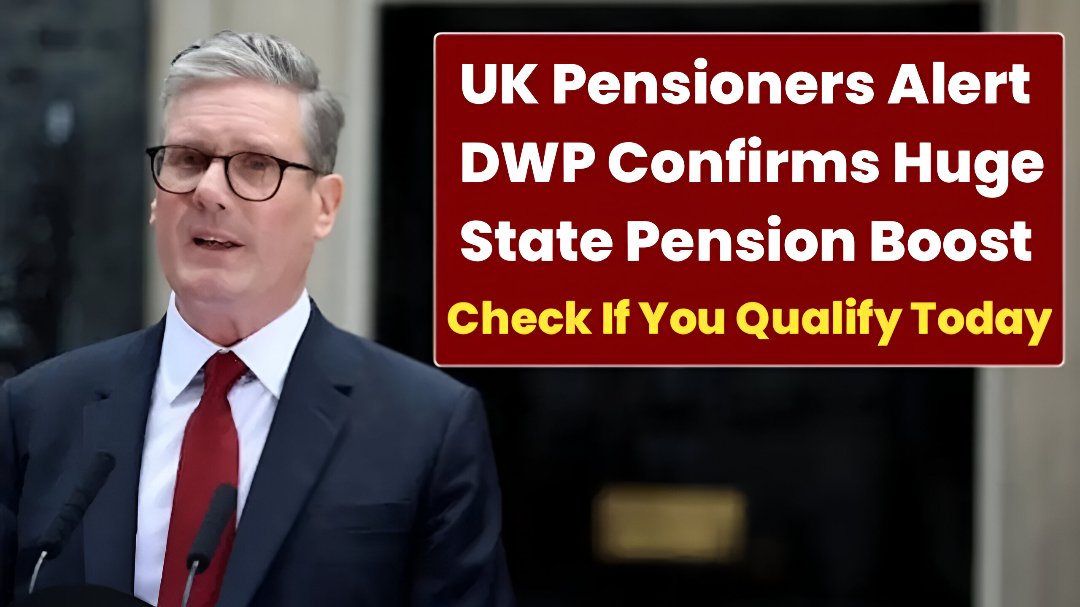The Department for Work and Pensions (DWP) has recently confirmed a significant boost to the State Pension. This increase will impact millions of UK pensioners and those approaching retirement. With the rising cost of living and economic uncertainty, this announcement has generated excitement and curiosity among retirees and their families. In this detailed guide, we will cover everything you need to know about the State Pension boost, eligibility criteria, how to check if you qualify, and how this change will impact your finances.
What is the State Pension?
The State Pension is a regular payment from the UK government that you can claim when you reach the State Pension age. It provides a foundation for your retirement income, supplemented by private pensions or savings. There are two types of State Pension:
- The Basic State Pension for those who reached State Pension age before April 6, 2016.
- The New State Pension for those who reached State Pension age on or after April 6, 2016.
Details of the Pension Boost
The DWP has announced a substantial increase in the State Pension under the triple lock system. The triple lock ensures that pensions increase by the highest of three measures: inflation, average earnings growth, or 2.5%. This year, the rise is driven by strong wage growth, resulting in a boost of over 4%.
- The new State Pension will rise by several pounds per week.
- The basic State Pension will also see a meaningful increase.
This increase is designed to protect retirees’ incomes from being eroded by inflation and to keep pace with general earnings growth.
Why the Increase Matters
The boost comes at a time when many pensioners are struggling with rising bills and higher living costs. Energy prices, food costs, and healthcare expenses have all gone up, putting financial strain on older adults. This additional income will provide welcome relief and help many maintain a comfortable standard of living.
Who Qualifies for the Pension Boost?
Eligibility for the pension increase is straightforward but important to understand. To qualify:
- You must have reached State Pension age, currently 66, but scheduled to rise in future years.
- You must have paid or been credited with enough National Insurance contributions. Typically, 10 qualifying years are needed for any State Pension, and 35 years for the full new State Pension.
- If you already receive the State Pension, the boost will be applied automatically.
How to Check Your State Pension
It’s crucial to know how much you’re entitled to and whether the boost affects you:
- Use the official State Pension forecast service to check your entitlement.
- Review your National Insurance record to see if you have gaps that could be filled with voluntary contributions.
- If you’re not yet at State Pension age, planning ahead can maximize your retirement income.
Additional Support for Low-Income Pensioners
Alongside the State Pension increase, low-income pensioners may be eligible for Pension Credit. This is a means-tested benefit designed to top up income to a minimum guaranteed level. With the recent changes, Pension Credit thresholds have also been updated, making it worthwhile to check if you qualify.
When Will the Boost Take Effect?
The pension increase usually comes into effect in April each year. Existing claimants will see the rise in their payments automatically without needing to apply. If you’re approaching State Pension age, your first payment after the start date will reflect the new rates.
Impact on Taxes and Benefits
It’s worth noting that higher pension income could have tax implications, especially if you have other sources of income such as private pensions or part-time work. The personal tax allowance has remained frozen, meaning more pensioners could pay tax on their income. It’s important to review your overall financial position and consider professional advice if needed.
Future of the State Pension
The triple lock has been a cornerstone of pension policy for years, but debates continue about its affordability. As the population ages and public finances tighten, there may be future changes to how pensions are calculated. For now, this boost represents a commitment to supporting retirees, but staying informed will help you adapt to any changes.
Key Takeaways for Pensioners
- The State Pension boost is automatic for all eligible pensioners.
- The increase will help offset rising living costs.
- Check your State Pension forecast and NI record.
- Explore Pension Credit if your income is low.
- Stay informed about policy changes that may affect your retirement.
Final Thoughts
This significant State Pension increase is excellent news for millions of pensioners across the UK. It highlights the government’s efforts to provide financial security in retirement. By understanding your entitlements, checking your records, and planning ahead, you can make the most of this boost and ensure a stable financial future. Whether you are already retired or approaching retirement, this change underscores the importance of keeping up to date with your pension and benefits.
